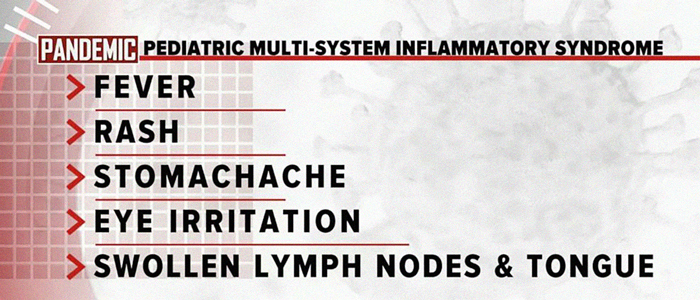As though it were not enough that parents across the world have to deal with taking care of their children in the throes of a pandemic, now they have a serious and potentially deadly threat added to that burden. The appearance of Pediatric Multisystem Inflammatory Syndrome has clouded an already bleak situation further. New York has the ominous distinction of being home to the most cases, further shoring up its role as the epicenter of the pandemic. On Tuesday this week, we had a reported 52 cases with that number climbing to 82 on Wednesday.
While information about the disease is still coming in from medical professionals, its relation to Covid-19, although yet to be positively confirmed, is likely in the opinion of most experts weighing in. We have chosen to supply our readers with a fact sheet from the NYC Department of Health containing a basic primer of information available thus far. Please keep in mind that the NYC Health Department may change recommendations as the situation evolves.
Fact Sheet: Pediatric Multisystem Inflammatory Syndrome
What is pediatric multisystem inflammatory syndrome?
Pediatric multisystem inflammatory syndrome (PMIS) is a new health condition appearing in children in New York City (NYC) and elsewhere. Some doctors think the condition is related to having coronavirus disease 2019 (COVID-19), but the connection is still not clear.
PMIS is like other serious inflammatory conditions such as Kawasaki disease and toxic shock syndrome. Children with PMIS can have problems with their heart and other organs and need to stay in a hospital to receive support in an intensive care unit.
PMIS is a rare condition. However, because it is life threatening, it is important that parents know the signs and symptoms, so they can get help right away.
What are the signs or symptoms of PMIS?
Most children have fever (temperature of 100.4 degrees F or 38.0 degrees C or greater) lasting several days, along with other symptoms.
Common symptoms include:
- Irritability or sluggishness
- Abdominal pain without another explanation
- Diarrhea
- Vomiting
- Rash
- Conjunctivitis, or red or pink eyes
- Enlarged lymph node (“gland”) on one side of the neck
- Red, cracked lips or red tongue that looks like a strawberry
- Swollen hands and feet, which might also be red
When should I call my child’s doctor or get emergency care?
You should call your doctor immediately if your child becomes ill and has had continued fever. Your doctor will ask about any signs or symptoms your child has and use that information to recommend next steps. If your child is severely ill, you should go to the nearest emergency room or call 911 immediately.
Is PMIS contagious?
PMIS is not contagious. However, it is possible your child has COVID-19 or another underlying infection that may be contagious. Until we know more, hospitals in NYC that are treating children with PMIS are taking the same precautions they take for patients with COVID-19.
Is there a treatment for PMIS?
Currently, children with PMIS are being treated with different therapies, including intravenous immunoglobulin and steroids. These drugs help reduce the body’s immune response that causes the inflammatory syndrome.
Children are also being given other medications to protect their heart, kidneys and other organs.
How can I prevent my child from getting PMIS?
Although we do not know yet if PMIS is related to COVID-19, taking steps to prevent your child from being exposed to COVID-19 is important. Face coverings, hand hygiene, and physical distancing are the best way to prevent COVID-19.

